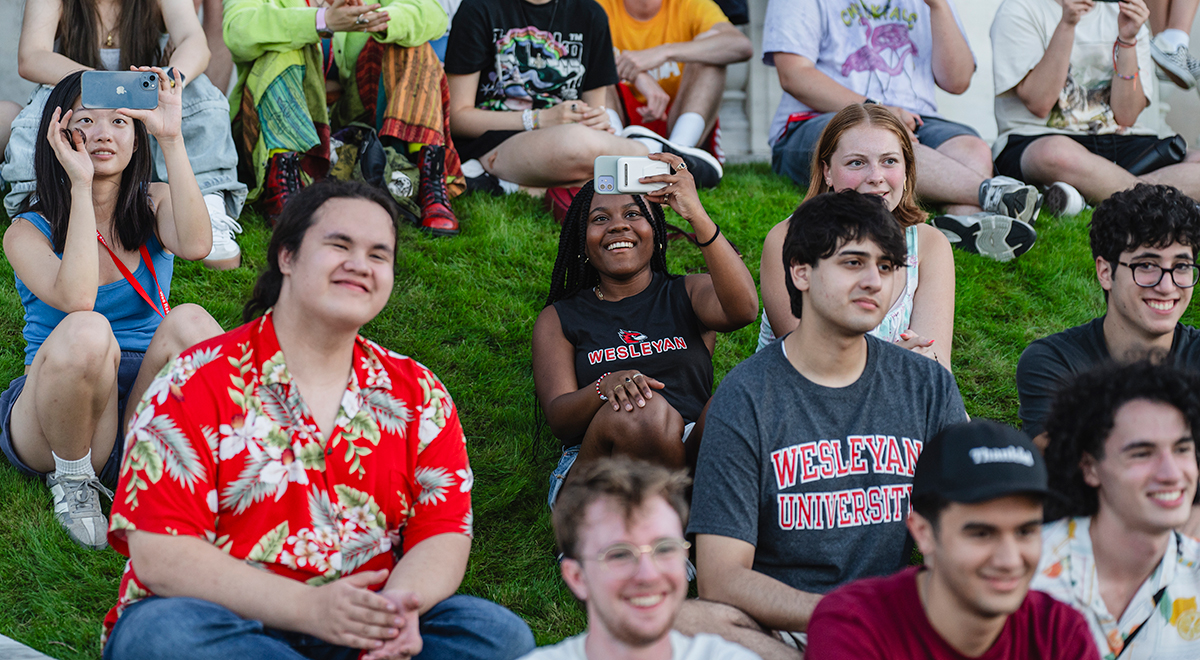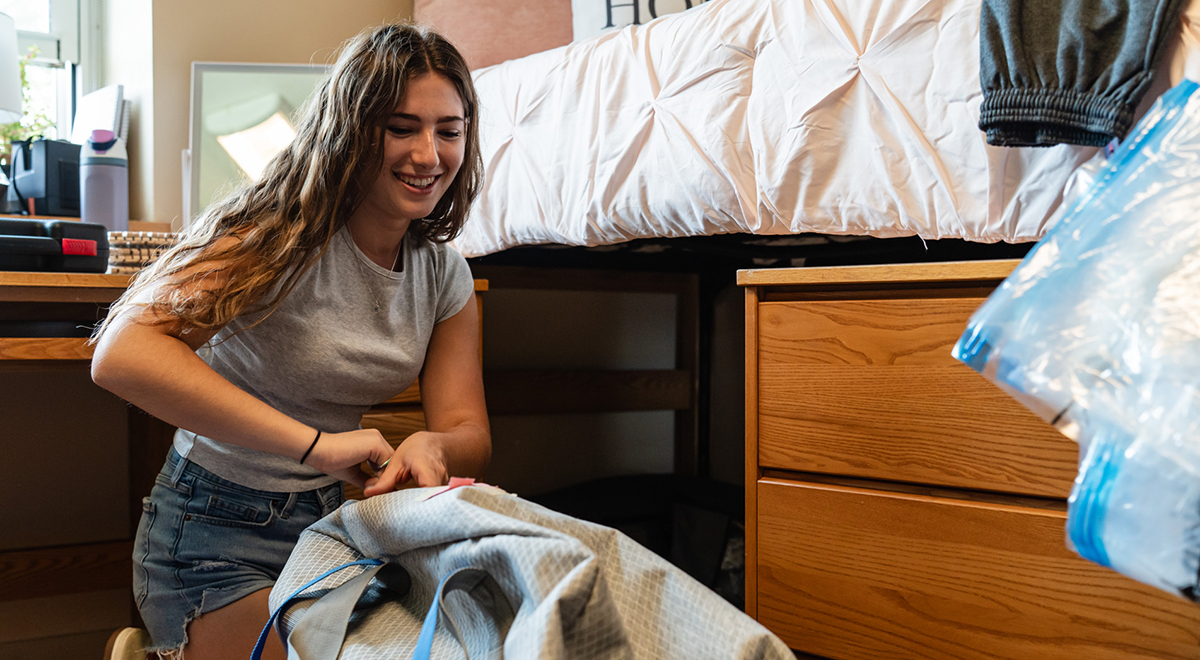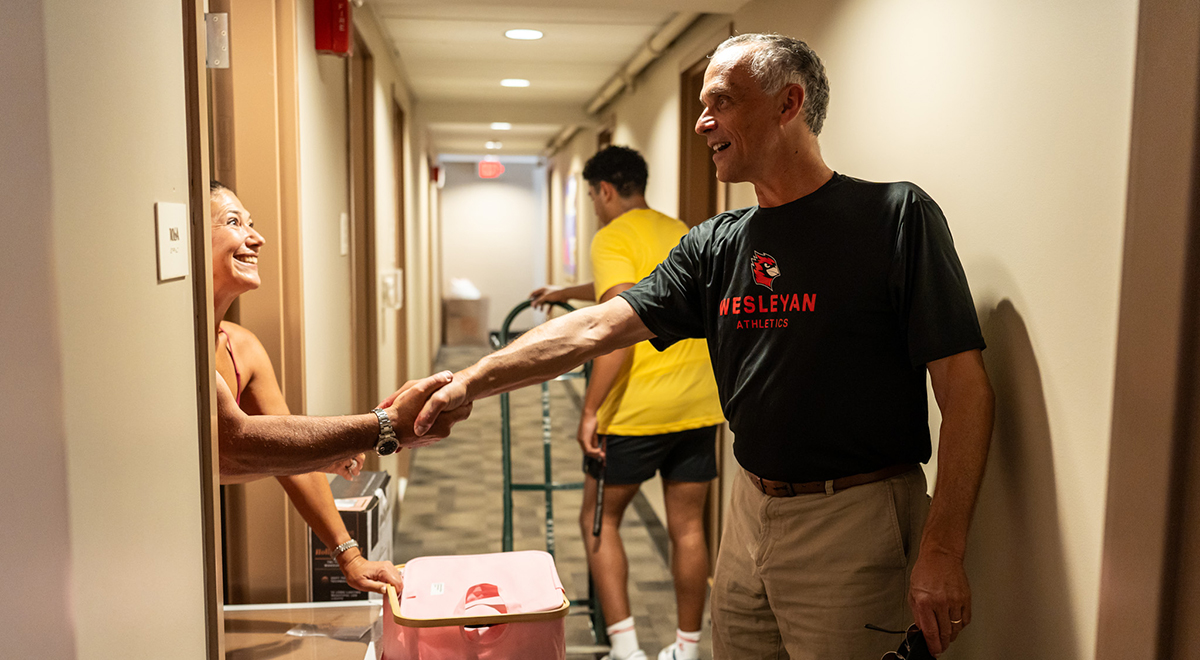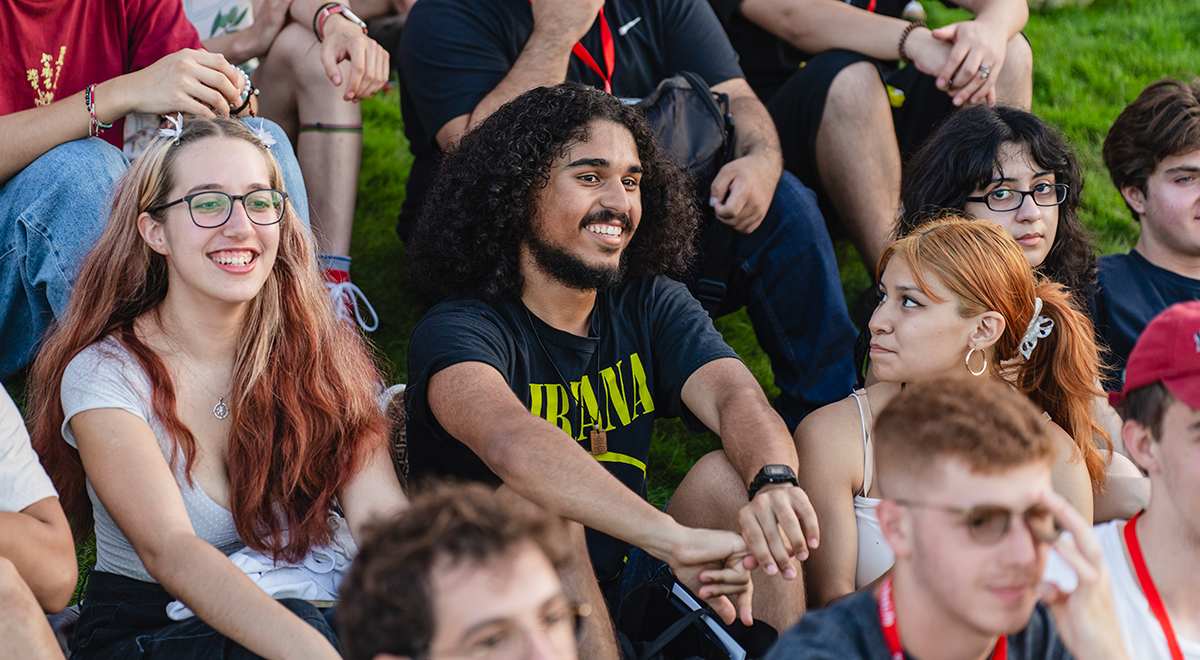Welcoming the Class of 2028

Arrival Day is the first step in the next stage of the lives of Wesleyan’s Class of 2028. For these students, it was the first time they were able to see inside their dorms at Clark Hall, Bennet, the Butterfields, and also the first time they could put their personal stamp on the walls of their spaces away from home — with an unsettlingly green brat poster or a vinyl from an old rock band to show their new cohort of friends.
For hundreds of Wesleyan’s newest first-year and transfer students, it was also the first day of the next four years of experimentation, learning, and pushing themselves toward new experiences. This fall will also be the first time many students are eligible to vote in an election and weigh in on national and local political races in support of the issues they hold dear.
One member of the new class, Aliciana Harvey-Lopez ’28, comes to Wesleyan with a swath of experience in community engagement and activism. She said she has been working to increase youth voter registration and restore voting rights to incarcerated people in her home state of Florida through various projects. Over the summer, she met with Congressional representatives and attended a session of the United Nations in New York.
“If [young people] want to see a change, we have to make the change happen,” Harvey-Lopez said.
She said she chose to come to Wesleyan because of the deep classroom discussions she heard while shadowing classes. While she intends to study economics and psychology, she is also a dancer and theater maker, and fell in love with campus at WesFest after seeing the Latin & Ballroom performances. She was also a participant in Wesleyan’s WesExplore program, where the University offers high school students from underrepresented backgrounds the opportunity to visit campus for free.

Harvey-Lopez is not alone in her interest in civic engagement. “It feels like an honor to get to vote, participate, and get to have your views heard,” said Casey Dunning ’28. “It’s a right for everyone to have, but it feels really special being able to actually feel myself being really involved and being able to use my voice.”
Dunning hails from Oakland, California — where housing insecurity has doubled over the last 10 years, according to the city — and he said access to affordable housing and abortion is top of mind for him.
“It’s a very complicated election this year, so I just think it’s important to understand the full extent of who you’re voting for,” said Rutendo Ruwende ’28. The Ann Arbor Michigan native said she has been following politics for a while. She is looking forward to doing undergraduate research here and hopes to be involved with Ujamaa, Wesleyan’s Black Student Union.

“It’s so important that students have the space to practice freedom, and that they work to protect that space,” President Michael S. Roth ’78 said to parents on Aug. 28. “That’s why I want them to get involved — not just in protesting against me, that’s small potatoes — but trying to elect the mayor they want, the president they want, the Congress they want.”
The Jewett Center for Community Partnerships provides grants through the Political Engagement Fund for students looking to participate in politics, which Roth has promoted on his blog.
The Class of 2028
Much of this class of students began their high school careers online as the pandemic imposed virtual learning on them and their teachers. Despite this, the Class of 2028 is among the strongest and certainly most resilient Wesleyan has ever admitted, said Amin Abdul-Malik Gonzalez, vice president and dean of admission and financial aid, in a talk with first-year parents on Aug. 28. It’s a class with high-achieving resumes— class presidents, team captains, school newspaper editors, band members — and limitless futures.
Gonzalez said the class is 830 students strong, coming from 40 states and 35 countries. There are 52 languages spoken by members of the first-year class and they hold citizenship in 70 countries. In total, 113 reside outside of the United States, coming from as far as South Sudan and Indonesia. Joining the Class of 2028 are 48 new transfer students, including six from community colleges and three veterans.
“I was born in a country that faces many problems, so I believe that a study in liberal arts education will equip me to be a problem solver and to think critically,” said Ruai Tap ’28 of South Sudan. “…I want to be an agent of positive change.”

Ruai Tap is one of 11 members of the second cohort of African Scholars. He wants to make economic, political, and technological changes in his home country after studying at Wesleyan. Like many of his peers, Tap will have the opportunity to discover what he loves over the next four years, and then share it with others.

